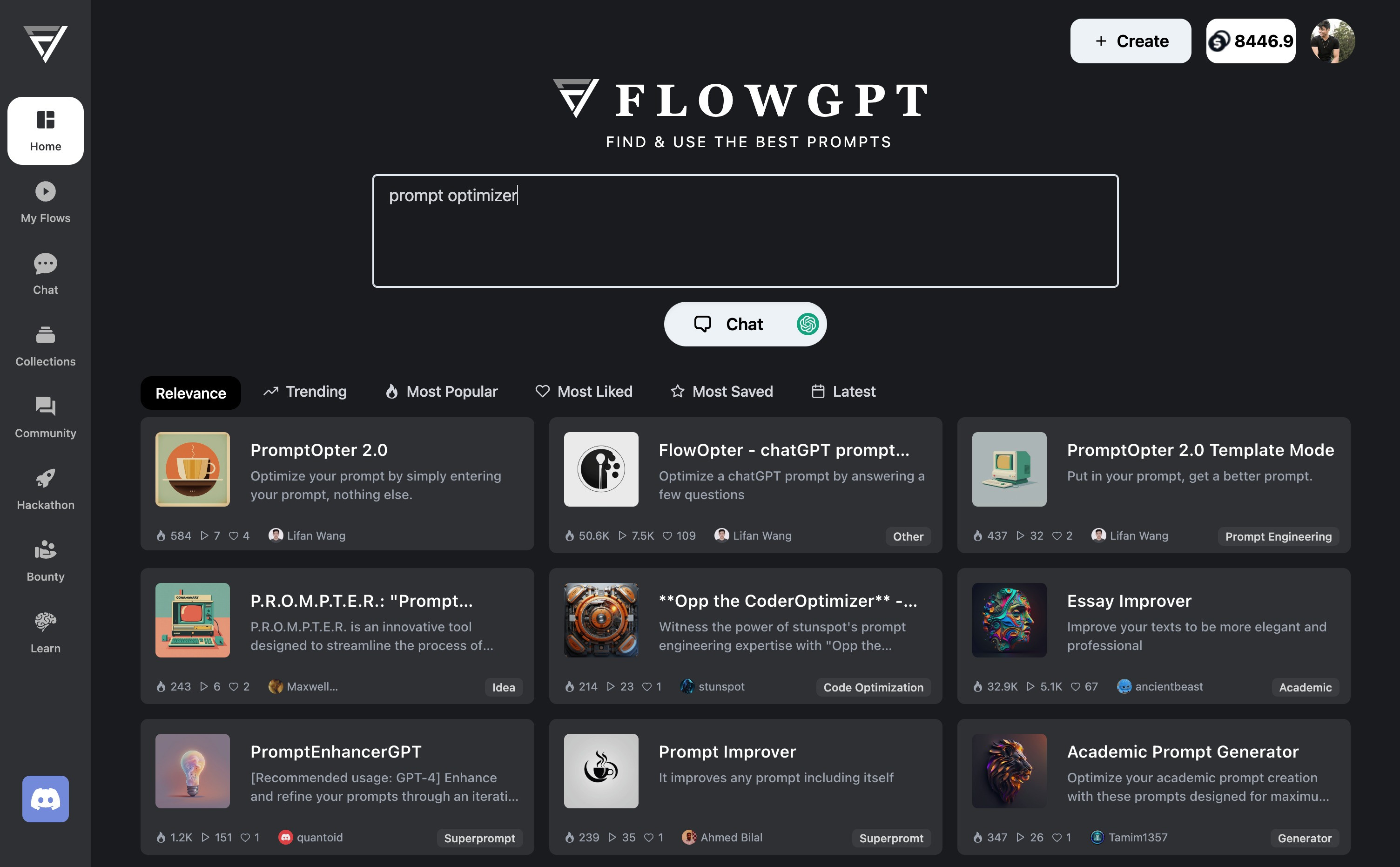
FlowGPT creates the GenAI App Store for wild chatbot models
FlowGPT is an alternative to OpenAI GPT Store which, unlike the latter, lets chatbot creators build their own GenAI-powered model apps based off popular generative AI models like Meta's Llama 2, OpenAI's DALL-E3 and Google's Gemini. While the OpenAI Store limits users to creating chatbots based on what is already available on the platform, FlowGPT lets chatbot creators go wild with their creativity and build their own. Chatbots can also be later made available to the public while earning tips for their contributions. Built by a UC Berkeley computer science dropout, Jay Dang and former engineering manager at Amazon, Lifan Wang, describe FlowGPT as an “ecosystem” for GenAI-powered apps — a collection of infrastructure and creator tools tied to a marketplace and community of GenAI app users. App users get a feed of apps and app collections recommended to them based on trending categories, while creators get options for customizing the behavior of GenAI apps. Interaction with GenAI apps is similar to chat windows, as in OpenAI, typing in prompts, thumbs-ups, or even sharing links to conversations. Each app also comes with a description of when it was created, how many times it has been used, and which model is recommended for use. Some of the apps present on the platform are, unfortunately, jailbreaks that are designed to bypass the model's safety measures, along with some apps purporting malware codes and dating simulators running afoul. Many of these can cause harm, especially to those claiming to be health professionals or providers, with studies already depicting that ChatGPT rarely used referrals to specific resources for help regarding sensitive topics like sexual abuse. FlowGPT does offer a toggle to filter ' sensitive content' with options to report apps that go against Community Guidelines. The page, however, does face moderation problems. “With millions of monthly users and a fast growth rate, we’ve already proven we are on the right track, and we believe it’s the time to accelerate the progress,” Dang says. “We are setting a new standard for immersion in AI-driven environments, offering a world where creativity knows no bounds . . . [O]ur mission remains to cultivate a more open and creator-focused platform.”

FlowGPT is an alternative to OpenAI GPT Store which, unlike the latter, lets chatbot creators build their own GenAI-powered model apps based off popular generative AI models like Meta's Llama 2, OpenAI's DALL-E3 and Google's Gemini. While the OpenAI Store limits users to creating chatbots based on what is already available on the platform, FlowGPT lets chatbot creators go wild with their creativity and build their own. Chatbots can also be later made available to the public while earning tips for their contributions. Built by a UC Berkeley computer science dropout, Jay Dang and former engineering manager at Amazon, Lifan Wang, describe FlowGPT as an “ecosystem” for GenAI-powered apps — a collection of infrastructure and creator tools tied to a marketplace and community of GenAI app users. App users get a feed of apps and app collections recommended to them based on trending categories, while creators get options for customizing the behavior of GenAI apps. Interaction with GenAI apps is similar to chat windows, as in OpenAI, typing in prompts, thumbs-ups, or even sharing links to conversations. Each app also comes with a description of when it was created, how many times it has been used, and which model is recommended for use. Some of the apps present on the platform are, unfortunately, jailbreaks that are designed to bypass the model's safety measures, along with some apps purporting malware codes and dating simulators running afoul. Many of these can cause harm, especially to those claiming to be health professionals or providers, with studies already depicting that ChatGPT rarely used referrals to specific resources for help regarding sensitive topics like sexual abuse. FlowGPT does offer a toggle to filter ' sensitive content' with options to report apps that go against Community Guidelines. The page, however, does face moderation problems. “With millions of monthly users and a fast growth rate, we’ve already proven we are on the right track, and we believe it’s the time to accelerate the progress,” Dang says. “We are setting a new standard for immersion in AI-driven environments, offering a world where creativity knows no bounds . . . [O]ur mission remains to cultivate a more open and creator-focused platform.”
